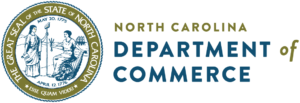The Emergence of a New Era in Political Influence and Ethics
The Trump International Hotel in Washington, D.C. symbolized a new era of influence when it opened eight years ago. Visitors could mingle with lobbyists and campaign donors, and even the cheapest cocktail was a pricy affair at $24. This trend seems to have evolved with the announcement of a new, exclusive club in Georgetown by Donald Trump Jr., named the Executive Branch. The club boasts a hefty membership fee of $500,000, attracting CEOs, tech executives, and members of the Trump administration.
Amidst this backdrop, controversy has erupted surrounding Qatar’s proposed gift of a $400 million airplane intended for use as a new Air Force One. The plane is expected to be transferred to the Trump Presidential Library after President Trump leaves office, raising concerns about potential personal use. The move reflects a broader trend of diminishing boundaries between public duties and private gains.
Recently, President Trump launched a new cryptocurrency, $TRUMP, which significantly boosted his wealth by an estimated billions of dollars, despite subsequent value decreases. The cryptocurrency provided an avenue for investors to channel funds directly to Trump, without transparency. The United Arab Emirates contributed a substantial $2 billion investment.
Trump’s enterprise is not new to the crypto world, with ownership of World Liberty Financial, a crypto mining company. This development marks a shift from Trump’s prior skepticism to a deregulated stance on cryptocurrency.
Financial transactions linked to the Trump family continue, such as the $28 million payment from Amazon for a documentary featuring First Lady Melania Trump. These instances showcase a direct flow of funds benefitting individuals rather than political entities.
Historical perspective on government ethics reveals past scandals, including the Crédit Mobilier and Teapot Dome. Presidents have historically engaged in extensive campaign fundraising. However, the current situation diverges as funds directly benefit officeholders personally, a concern the founders anticipated.
The Constitution’s Foreign Emoluments Clause, within Article I, prohibits officeholders from accepting gifts from foreign entities without congressional consent. This was designed to prevent external influence on American leaders, a principle stressed by figures like Gouverneur Morris and Edmund Randolph during the Constitutional Convention.
President Trump, in response to the gift controversy, stated, “I would be a stupid person” to refuse the plane, yet the authority lies with Congress, not the president.
During his first term, Trump faced a lawsuit from Maryland and the District of Columbia over profits from foreign and domestic officials visiting his hotel. The Supreme Court dismissed the case following Trump’s presidency, highlighting procedural challenges in enforcing the Emoluments Clause.
To mitigate future abuses, Congress could enhance enforcement of the Emoluments Clause and address procedural barriers that hinder legal action. The Brennan Center’s task force of bipartisan former officials recommended requiring presidents to place assets in a blind trust, a proposition included in the Protecting Our Democracy Act, which was blocked by a filibuster in 2022.
The emergence of new financial avenues like cryptocurrencies necessitates additional protective measures. As history shows, scandals often lead to reforms, and current events might pave the way for improved ethical standards in the future.





